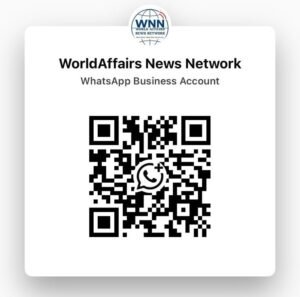KATHMANDU: Nepal is engulfed in crisis as nationwide protests erupt amid a sweeping ban on 26 major social media platforms including Facebook, Instagram, WhatsApp, YouTube, X, TikTok, Snapchat, LinkedIn, and Reddit triggered by their failure to register with government authorities. The restrictions, imposed on September 4 under a directive from the Ministry of Communication and Information Technology, ignited deep anger among the younger generation, especially Gen Z, who view social media as central to daily life, activism, and economic survival.
What began as peaceful street demonstrations quickly escalated. In Kathmandu and cities across Dhulikhel, Pokhara, and Biratnagar, young protesters—including schoolchildren clashed with security forces outside the Federal Parliament and around Maitighar Mandala. Authorities responded with tear gas, water cannons, rubber bullets, and live ammunition; multiple cities are under curfew, and the Nepal Army has been deployed.
Death toll estimates vary, with casualties ranging from 14 to 20 confirmed fatalities and hundreds injured across the country. Media reports cite between 300 to over 347 injured, making this one of the most violent protests in decades.

Former Deputy Prime Minister Rajendra Mahato has sharply criticized the government’s actions, calling the ban “an attack on democracy and the freedom of the people.” In a statement to WNN, he warned that “imposing curfews will not quell the protests; instead, it will spread across the country.” He urged for the “immediate removal” of the ban and humane treatment for injured protesters, while calling for accountability for the perpetrators of violence. Mahato also condemned the rising “anti-India nationalism” promoted by ruling Communist parties, stating it harms Nepal and its citizens.
Beyond civil liberties, the economic fallout is severe. With Nepal’s social media-based economy including content creators, small businesses, and freelancers—heavily disrupted, observers warn of long-term damage to digital livelihoods and entrepreneurial ecosystems. The Committee to Protect Journalists has condemned the ban for severely undermining press freedom and citizens’ right to information.
Internationally, human rights groups and the UN have called for independent investigations into the violence. The protests are being seen not just as a response to censorship but as a broader generational uprising against corruption and the misuse of power.
As Gen Z mobilizes under slogans like “Enough is enough”, and with hashtags like #NoBan, #BolnaDeSarkar, and the trending digital campaign #Nepobaby targeting political dynasties, the movement is rapidly evolving into Nepal’s most significant democratic reckoning in years.
–Vimal Upadhyay
WATCH, LIKE and SUBSCRIBE VIDEO Channel.



















